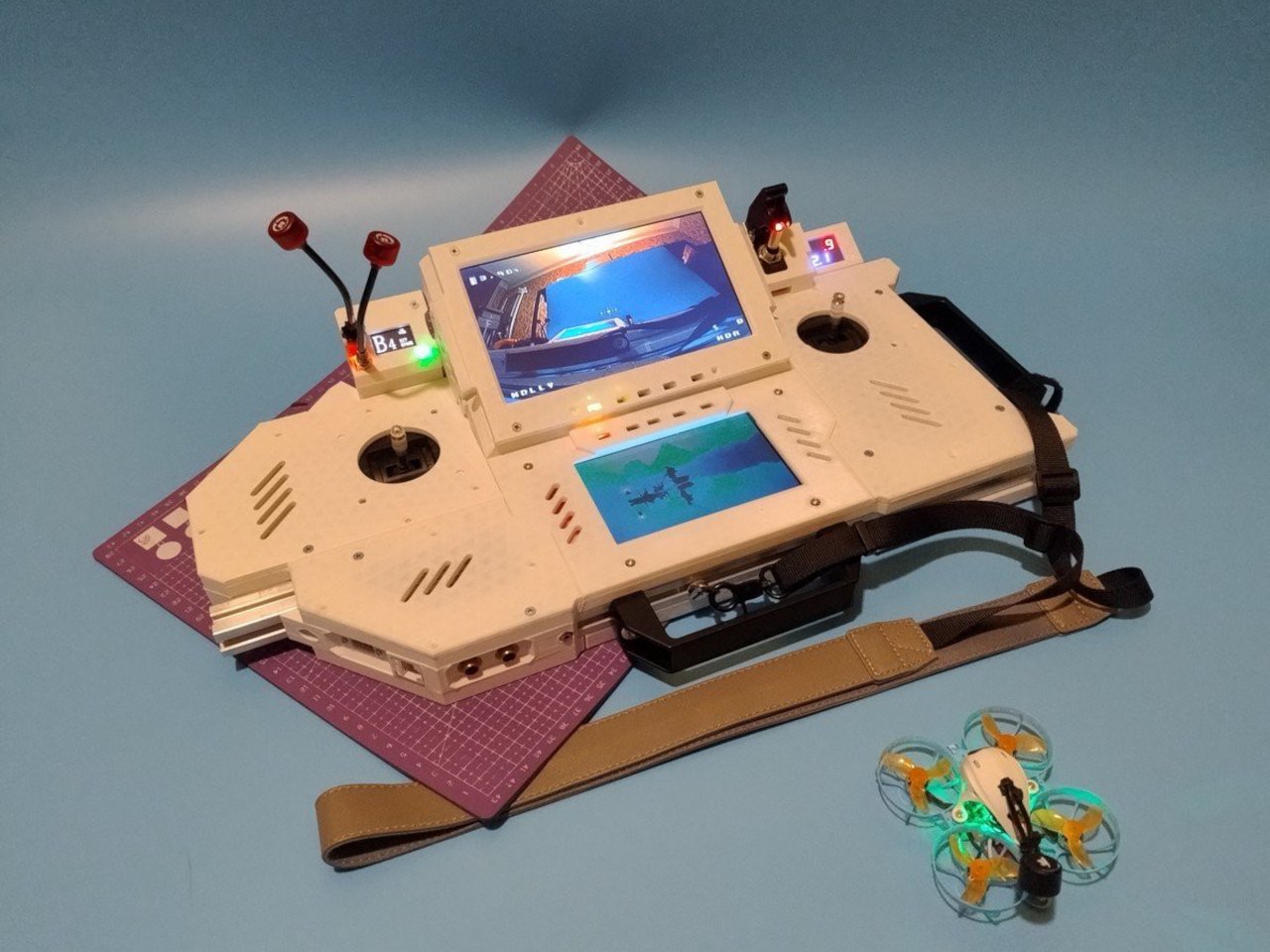The cyberdeck movement has been quietly exploding in maker circles, with DIY enthusiasts building everything from portable hacking rigs to retro-futuristic computer terminals. But most cyberdecks focus on keyboards and screens for coding or browsing. The ESC.VTOR takes a completely different approach, reimagining the cyberdeck as a hands-on ground station for controlling robots and remote vehicles.
This open-source project on Hackaday.io, where creator mkdxdx has been documenting every step of the build process with refreshing transparency. Instead of hiding mistakes or glossing over challenges, the project logs show the messy reality of prototyping, complete with design pivots and troubleshooting sessions that actually help other makers learn.
Designer: mkdxdx
The ESC.VTOR is described as “a bulky, yet portable, RPi4-based cyberdeck with sticks, CVBS signal chain, and control transceiver.” The whole thing feels more like a pilot’s cockpit than a typical computer interface, with analog controls designed for real-time piloting rather than abstract digital interfaces.
What makes this project genuinely exciting is how it prioritizes tactile, physical control over abstract digital interfaces. While most cyberdecks are built around keyboards for typing commands, ESC.VTOR is designed for piloting things in real time. The analog controls give you the kind of nuanced control that touchscreens and keyboards just can’t match.
The modular design philosophy means you can adapt the system as your needs change. Want different controls for a complex robot? The system’s flexibility accommodates changes. This adaptability sets ESC.VTOR apart from both commercial control systems and most DIY projects that lock you into one configuration.
The Hackaday community has been actively contributing feedback and suggestions, which the creator incorporates into new iterations. This collaborative evolution keeps the project relevant and helps solve real-world problems that only emerge when people actually try to build and use these things. The transparent development process also makes ESC.VTOR incredibly valuable for learning.
Most cyberdecks in the wild are portable computers designed for hacking, coding, or just looking cool at conventions. ESC.VTOR carves out a unique niche as a practical tool for anyone who needs to control machines remotely. The project includes EdgeTX port implementation, allowing it to control drones and other RC vehicles effectively.
The project’s emphasis on accessibility and documentation makes it approachable for makers who might be intimidated by more complex builds. You don’t need advanced programming skills or expensive tools, just patience and a willingness to learn through hands-on experimentation.
ESC.VTOR proves that the best DIY projects solve real problems while looking absolutely fantastic doing it. By combining the cyberdeck aesthetic with genuine utility, this ground station deck offers something the maker community has been missing: a control interface that actually makes controlling things more enjoyable and intuitive.
The post ESC.VTOR Cyberdeck Is a DIY Raspberry Pi Ground Station for Drones first appeared on Yanko Design.

